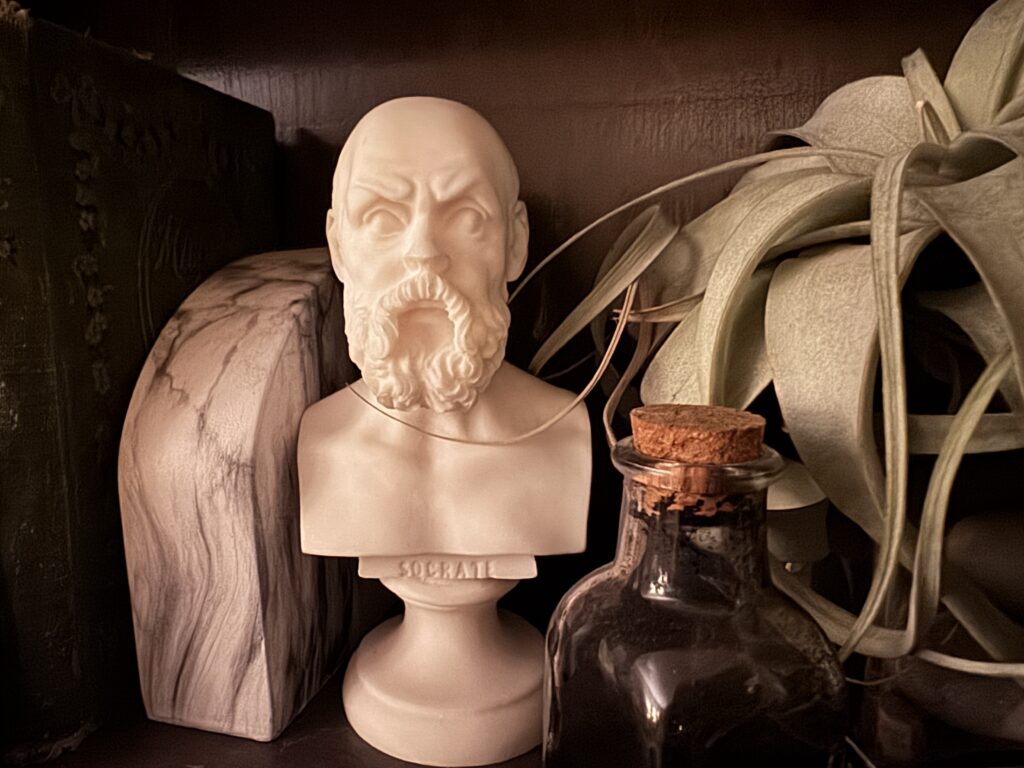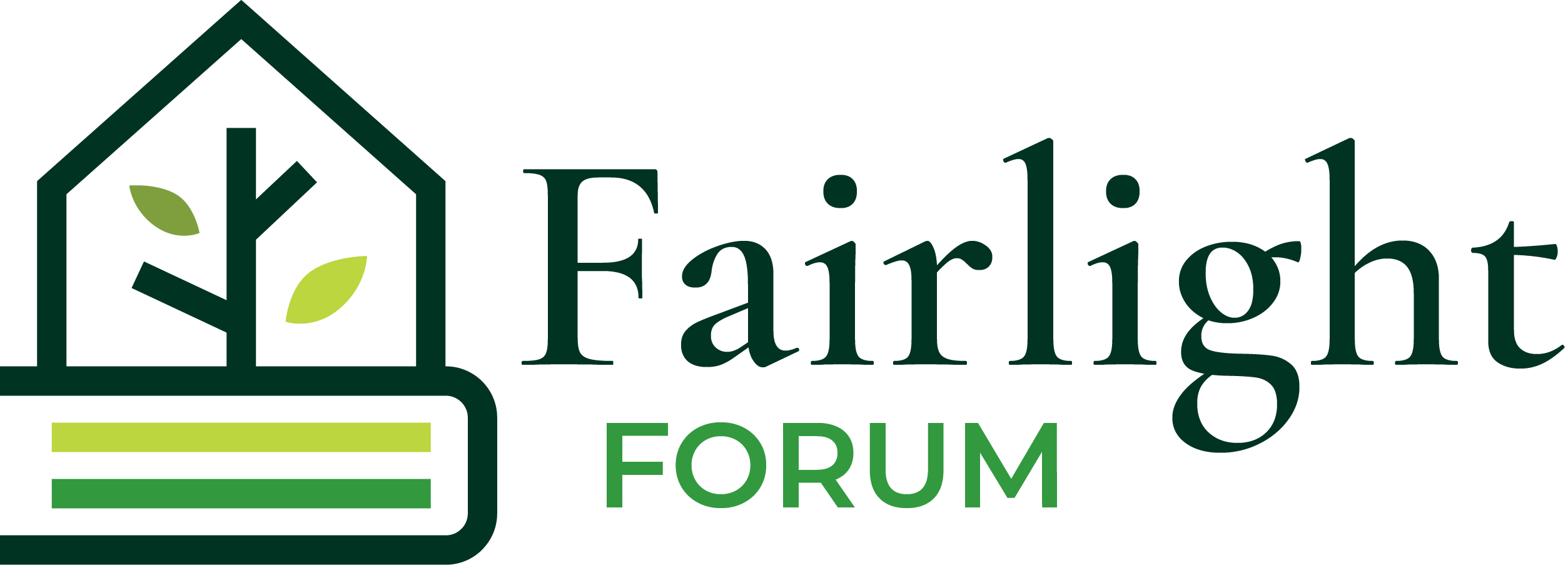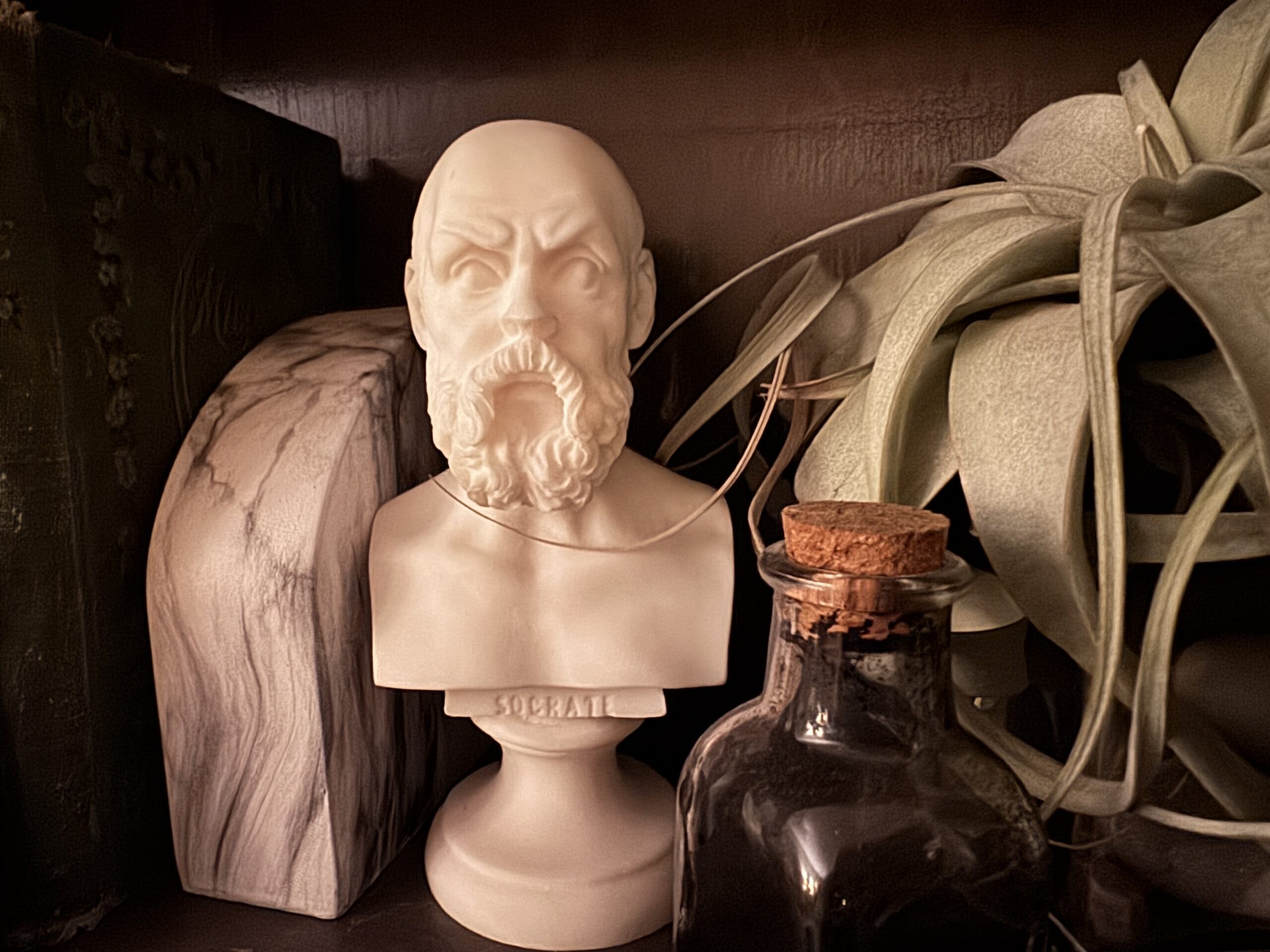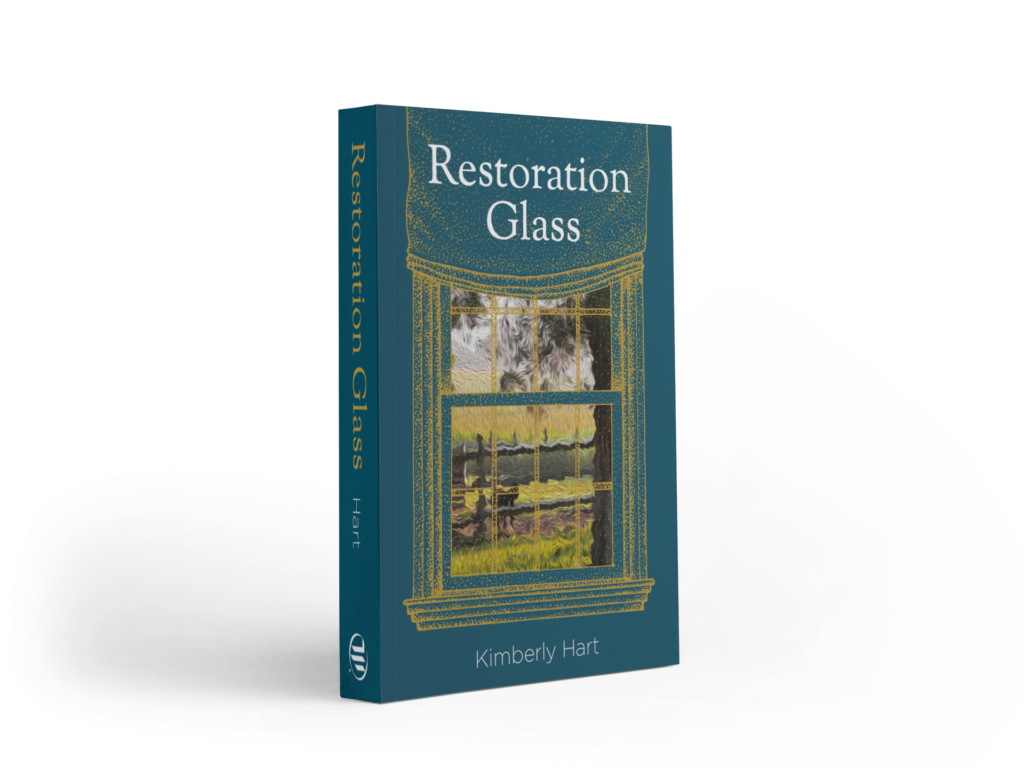
And it is that healthy conflict we need to resolve the complex problems facing us today.
Socrates stares me down as I type, reminding me of why I chose law school all those years ago. The Fairlight Forum was birthed from an idea that first began humming in my mind while I was a law student at Columbia University. The need I saw burgeoning then has only grown in the subsequent years. The Fairlight Forum is a place for communication—ideas small or grand, discussion, debate, dialogue—and community. Here at Fairlight, we argue that you can’t have the former without the latter. Good, honest, productive, and forward-thinking communication doesn’t happen easily or well outside of the embrace of community. We cannot move forwards with solution generating debate without shoring up the basic foundation of community.
When I started my legal journey, continuing my studies of political science, peacebuilding, international law, human rights, and civil rights, I was just beginning to see that culturally and politically we were becoming less willing—or perhaps less able—to debate issues thoughtfully, to be willing to challenge themselves and consider another perspective. I sat with classmates studying law, who would argue that if you believed x, you were simply a bad person. There was often little room to play devil’s advocate and argue an opposing position to test for inconsistencies or biases or to look at an issue from a different perspective. Not every topic or every question fell into this trap. I was alarmed, however, at the number of seeming grey issue areas that did. I can understand how we might not feel comfortable debating settled historic issues of good versus evil such as Nazi Germany or slavery, but how can we not be willing to engage in honest, earnest debate about important issues of today, such as healthcare policy or education or even local zoning laws? Students at an Ivy League law school should not be unwilling to hold deep discussions in good faith with people with whom they do not see eye to eye, yet instead of championing pluralism and free debate, people were circling their wagons against opposing ideas. I found it troubling back then, coming on the heels of the wars in the former Yugoslav Republics and the upheaval in South Africa, the ongoing crisis in the Middle East, the British handover of Hong Kong, and our own challenges with class, race, sexuality, and religion in the United States. I certainly don’t mean to disparage all of my classmates. I had many intense, thought-provoking, and challenging discussions with friends. Despite those encouraging interactions, however, I noticed a stark difference then from the enriching curiosity of my MIT encounters. At the time, I hoped it was merely the difference between engineers or scientists and lawyers. I don’t think it was.
My experience in law school was only the start of my observations on the decline of robust, productive debate—a decline of healthy conflict. During my stint in global human rights advocacy within the US government, I found that soundbites were the norm and nuance was not. Winning votes meant winning the battle of the quip, not winning via strategic and logical debate.
On the personal front, I had moved from a small town to two different university communities—meaning I had been surrounded most of my life by people I hadn’t chosen to be with, who were often quite different from me, with different values and different interests. Once out in the professional world that changed. People were moving to neighborhoods with others who shared their views and picking a church because of its politics and worldview. Fellow parents were choosing not the school across the street, but the school across town that was “a better fit.” Despite living in Washington, DC, I saw an increased narrowing of the meaning and living out of community.
And I saw our divisions increase. Community has come to mean similarity of identity, but perhaps we need to consider it more in light of fellowship with others. And that is the heart of Fairlight. By gathering in a place of beauty and sharing a meal—or a cup of coffee—and sharing that all too rare gift of time together, people can grow in fellowship with one another. They can share stories and ideas and bits and pieces of themselves. They can discuss goals and ideals. And then, when the harder conversations begin, they have a connection, a relationship that allows them to hear, to pause their first impulsive response, and to consider what they are hearing.
Coming to the Fairlight Forum means a willingness to acknowledge your own biases, an openness to hearing the value in the perspective of others, and a desire to join together in searching for the true amidst the deceptive. It means exchanging the concept of community as like-minded for community as a group that shares a common place and common goals. Of course, we then need to reconsider our concept of goals. Do we mean to include only those with the specific policy goals or should that be expanded to include all of those who share broader goals, such as the betterment of other people? To do that, we need to consider that we can seek the betterment of others in myriad ways, to acknowledge that our understanding is only in part, and to recognize that we may see only one of many paths to the goal of making life better for humanity.
Is that possible today? I don’t see that happening on a regular basis. And that is why Fairlight exists. We serve as the place where Others can meet. A third space that is apart from daily life. A place of beauty that rests and restores. It is in places like this that we can hear and we can feel heard. And that is the beginning of community. And it is that community that can meet in healthy conflict. And it is that healthy conflict we need to resolve the complex problems facing us today.
We look forwards to welcoming you at Fairlight.



